Confederate Truths: Documents of the Confederate & Neo-Confederate Tradition from 1787 to the Present.
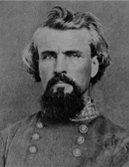

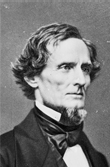
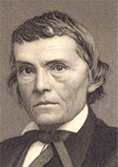

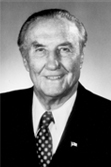
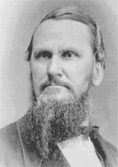
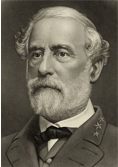
Confederate Princples Yesterday And Today -- Oct., Nov. 1957
From the United Daughters of the Confederacy Magazine, 1957, October pages 45, 58, continued November page 39.
It should be noted that this article on the meaning of Confederate principles is by a past commander of the Sons of Confederate Veterans, and is selected by the United Daughters of the Confederacy magazine for their readers. This article is a condemnation of the Supreme Court's Brown vs. Board of Education of Topeka decision striking down school segregation and makes very clear what the purpose of honoring Confederate heroes is.
Errors in the original were only corrected where it was felt necessary for clarity and it was fairly clear what the error was.
Confederate Principles Yesterday And Today
By JUDGE WILLIAM BEARD Past Commander in Chief S.C.V.
September 27, 1956, marked the 147th Anniversary of the birth of Admiral Raphael Semmes, immortal Confederate naval hero, and Maryland's greatest contribution to the Confederacy.
On Sunday, June 30, 1861, guided by an ardent Confederate pilot, Raphael Semmes in command of the little steamer Sumter slipped through the cordon of Federal Warships guarding the channels of the Mississippi and put out to sea.
That night he entered in his diary, "May almighty God smile upon us and our cause and may we show ourselves worthy servant of Him and of it."
As we are assembled here for our convention, may each one of us pray the prayer of Raphael Semmes, "May almighty God smile upon us and our Cause, and may we show ourselves worthy servants of Him and of it."
From 1860 to 1864, 756 U. S. registered vessels were transferred to British Registry and British shipping grew from a total tonnage of 7,000,000 in 1860 to a total of 14,000,000 in 1864.
The U. S. Merchant Marine, which was second only to that of Great Britain in 1860, almost disappeared from the seas by 1864. This tremendous change was wrought largely by Raphael Semmes with the Sumter and the Alabama.
Admiral Semmes had lived up to his sailing orders "to do the enemy's commerce the greatest injury in the shortest time."
Raphael Semmes was the Stonewall Jackson on the Seas. There never was a naval commander, who in so short a time, committed such depredations on the enemy's commerce, or who so successfully eluded the ships sent in pursuit of him. Raphael Semmes' career changed the world's theories of naval warfare. It marked the end of sails and began the era of steam in naval warfare.
His seamanship, his skill, his daring his energy, his just and legal decisions, his humane treatment of captives, his unquenchable spirit and his unswerving loyalty to the Confederate Cause, stamped him as one of our greatest Confederate heroes. Honor his memory by reading "Memoirs of Service Afloat."
Jefferson Davis, Robert E. Lee, Thomas Jonathan Stonewall Jackson, Nathan Bedford Forrest, Raphael Semmes and the 600,000 soldiers and sailors of the Confederacy did not fight for a "Lost Cause." They fought to repel invasion, and in defense of their Constitutional liberties bequeathed them by their forefathers. Their second war for Independence has inspired heroic people everywhere in their struggle against the invader and for the right of local self government.
The valorous deeds of the Soldiers and Sailors of the Confederacy will stand forever as beacon lights of human courage and endurance for the integrity of principle.
The glorious blood-red Confederate Battle Flag that streamed ahead of the Confederate soldiers in more than 2000 battles is not a conquered banner. It is an emblem of Freedom. It was lovingly carried on the battlefields of Germany and France, and on the Pacific Seas and Islands by the descendants of the man who wore the gray. It will never be furled as long as men of courage are willing to fight and die for the rights and freedoms guaranteed them in the Magna Charta, in the Declaration of Independence and in the Constitution of the United States and especially in the Tenth Amendment thereof which reads: "The powers not delegated to the United States by the Constitution nor prohibited by it to the States, are reserved to the States respectively, or to the people."
At the Eighth annual conference of State Chief Justices in Dallas Texas a number of Chief Justices from Northern and Southern States warned that American liberties are imperiled by the United States Supreme Courts usurpation of legislative power and by the Federal Governments' increasing intervention into the private affairs of citizens. Chief Justice Roger L. Dell of R. I. is reported to have said, "I think it can be fairly said that our Constitutional framers, in the light of present day affairs, would have difficulty recognizing their creation."
Your own very able Chief Justice William H. Duckworth attributed the Supreme Court's "usurpation of more and more power for the Federal Government" to the recent appointment of Justices with little or no judicial experience and often with no practical law experience. Of the present nine members of the Supreme Court four appointed by the late President Franklin D. Roosevelt, three by President Harry Truman, and two by President Eisenhower, not one had experience as a trial judge. The only members with previous judicial experience of any kind were Justice Minton who had sat for 8 years on the Circuit Court of Appeals; Justice Black who had been a Police Court Judge for 1 1/2 years and Justice Harlan who had been a judge in the Circuit Court of Appeals for 14 months. "The United States Supreme Court" said Chief Justice Duckworth, "has invaded every state and every precinct. They use the welfare clause of the Constitution, but they concentrate on the word 'welfare' and forget the word 'general'. Other Chief Justices pointed out that the welfare clause of the Constitution has been the basis for a vast expansion of Federal power.
It was pointed out that, in cases upholding the social security act, the Supreme Court established the principle that the power to tax and the power to spend for the general welfare are coextensive and may be used for purposes outside of the field of Congressional regulation.
For more than 20 years the left wingers ceaselessly and sedulously have tried to fool the American people into the belief that the State's Rights was an encumbering hangover from our 18th century rural society.
In the process of centralizing the Federal power in Washington in violation of the principle of State's Rights as guaranteed in the Tenth Amendment, the American people have been forced to pay too large a share of their earnings to the income tax collector in order to subsidize by outright gifts all the socialistic governments on earth. In the prodigality of our gifts we have not only rolled up our national debt to the point where it now exceeds the value of all the tangible property in the country, but we have made it practically impossible for the honest. American taxpayer to adequately provide the savings necessary to educate his children and support him in his illness or old age.
The Federal income tax must be reduced and in order to effect such. reduction we want less and not more of Federal Government. Each new president promises economy and then spends more money than his. predecessor.
We hear much about the, necessity of Federal aid to Education. We do not need Federal aid, but we do need, additional funds for education and these funds should be made available by depriving the Federal Government of the, right to levy estate and gift taxes. The taxes should be imposed by the States Under the reserved powers guaranteed in Article X, the States and not the Federal Government have the power to provide and maintain schools. That means that neither Congress or the Supreme Court has power to control education. The Supreme Court is given power to construe the Constitution, not to amend it.
[Continued Page 39, November U.D.C. Magazine]
Since the Supreme Court decision of May 17, 1954, reversed what had been the Supreme Law of the land for 75 years and declared unconstitutional the laws of 17 states under which segregated school systems were established, the thinking people have been aroused from their lethargy in respect to State's Rights. While the decisions of the Supreme Court must be accepted by the Courts of the United States and by the States, they need not necessarily be accepted by the Court of public opinion.
When a Justice of the Supreme Court dissents from the opinion of his fellow Justices, he impliedly criticises them.
One hundred representatives of the people in the United States Congress have issued a "manifesto" criticizing the Supreme Court's decision of May 17, 1954.
A precedent for such criticism arose after the Dred Scott decision. Abraham Lincoln criticized the court declaring the decision erroneous and pledging the Republican Party to "do what we can to have it over-ruled.
If the Supreme Court can usurp the right of the States to regulate education, it can usurp other powers of the States.
Supreme Court decisions should be grounded in legal precedents and not in psychological and sociological concepts.
In Briggs V. Elliott et al, 103 Federal Supplement 920, Judge John J. Parker.
It is an historical fact that the Congress which proposed the 14th Amendment operated segregated schools. The Supreme Court has held again and again that the "separate but equal" doctrine is not per se a violation of the intent of the 14th Amendment. The operation of the public school system by the various States, according to varying conditions, is essentially a legislative matter and the power to operate such a school system was never delegated to the Federal Government by the States.
When the decision of 1954 overthrew this settled principle of constitutional law; the Supreme Court not only legislated (which it cannot do) but actually amended the Constitution. The whole issue is ably treated by Judge John J. Parker, of the Federal Circuit Court of Appeals, Richmond, Va., in his lower Court opinion in the Clarendon County Public School Segregation Case.